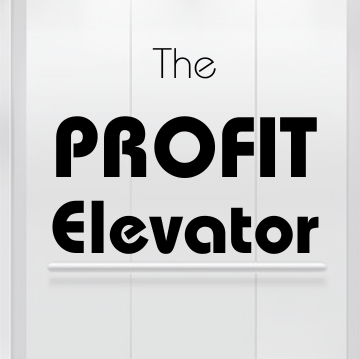
The Advantages of Part-time Sales
Last Thursday, I asked on LinkedIn if startups should use part-time sales resources. The comments were near unanimous in imploring businesses not to do this. A couple gave insights into when it works.
Temporary sales people have several advantages. They are paid commission only, saving overheads and keeping customer acquisition costs down. They are practised in closing and motivated to do so, given their remuneration. As a result, they follow scripts and implement instructions.
Does your full-time sales team do that?
What’s not to like
Most people who try and fail with part-time sales bemoan the lack of subject matter expertise. I’ve also heard this said about full-time sales teams, especially those hired after a startup developed a product. This highlights two problems with the sales process:
A silo mentality: sales are hired and told to find a market for a product.
No training: the sales process is not recorded, tested and improved.
A second objection to temporary sales is that founders should be selling their own product. I agree, but again this criticism applies equally to full-time as well as temporary teams.
If founders run away from selling at the first opportunity that’s a bad sign. They should be a firm’s top sales person and the one clients most want to hear from.
A final point was that mercenary sales people don’t believe in the product. They are the door-to-door charity chuggers, paid a percentage of donations and pitching one cause today and a different one tomorrow.

A Chugger at Work (source: The Coventry Telegraph)
I’d argue you want sales people to be mercenary. Pay them cash rather than dilute your equity and be happy if they’re the best paid people in the firm. And yes, that means being paid more than the founder, whose reward comes later.
So how can you overcome objections and make temporary sales teams work?
Knowledge-Motivation-Implementation
To deploy temporary sales teams effectively, use the knowledge-motivation-implementation model.
Knowledge: Focus on Closing
The most important factor when hiring temporary sales teams is that the founding team understands the sales process inside out. This means they have designed it, done it and scripted it. Effective scripts are easy to follow and analyse.
A sales process involves serving, selling and closing, which are three skills to be executed in order. Full-time teams handle all three elements, supported by marketing, while part-time sales focus on closing.
Motivation: Prove it Works
Sales people are motivated if the product sells. Part-time people in particular quit if it pays more to sell someone else’s product.
A mistake I see all the time in mid-sized businesses is believing an email, a campaign, or sales script works because it generated a sale. Marketing is about qualifying leads, selling about using questions so clients address their own concerns, and closing is about repeated sales and signatures. Set your teams goals and have them work to beat them by refining their processes.
If you serve and sell well, then you should complete on half the conversations held by closers. By the time they call a client, remaining questions are logistical. There is still a technique to closing at least half the time, but it may be scripted and taught.
Implementation: Constant Improvement
No script is perfect. Record all calls and analyse them to see where sales break down. Improve that part of the process and repeat.
Do not fall into the trap of assuming the sales team are experts and can be left to close. All sales teams, regardless of tenure and status, require regular training on the specific sales process in your business.
Making it Work
Last week, I wrote about lessons from a 100 million pound sales man. Andy Harrington of The Professional Speakers Academy uses part-time sales to close. Andy is a veteran sales person, with extensive evidence that his process works and meticulous scripts to help professionals close.
If your sales process isn’t working, have you closed deals consistently? Did you design the process? If you answer no, then you are most likely the reason that sales aren’t closing.
I'm Simon Maughan and I write The Profit Elevator as a guide for B2B firms seeking faster growth. Sales is covered in The Streamlined Selling System in The P.R.O.F.I.T. Through Process Planner.
If you found this letter valuable, please share it with a colleague and a friend.
